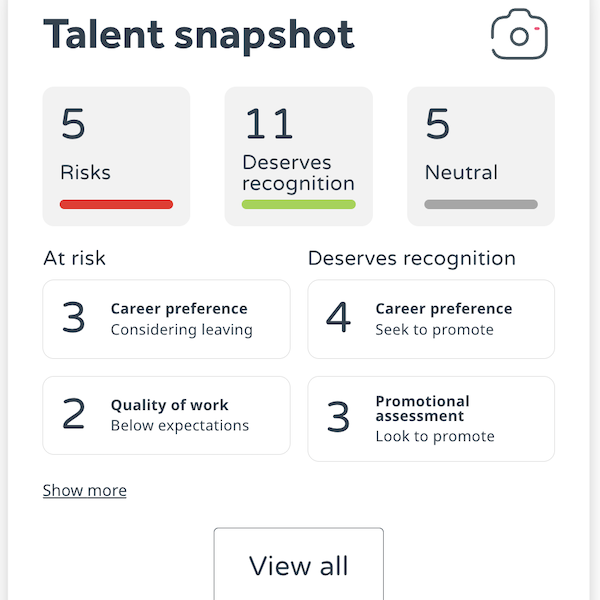How connected your employees feel to your organisation matters. Connected, engaged employees are happier and outperform those who don’t feel connected to the aims of the business they are working for.
So, what is about connection at work that matters? Connection is a basic human need. When employees feel connected to the vision and values of an organisation, they take more ownership and pride in their work. Shared values and a shared vision are the basis for camaraderie and kinship. Connection motivates employees and is an essential driver of productivity.
A sense of belonging or connection isn’t a fluffy nice-to-have, it’s critical. Business success relies on people coming together to work towards the same goals. When employees feel a deep, strong connection to the work they are doing, they are more likely to expend energy, give more to the organisation and generally be more positive about the company when at work and outside. It means less mistakes, higher quality work and a happier vibe.
If a connection to business goals is fundamental for employee engagement, how do you know if your employees feel the same way as you do? Especially as deficits can be well hidden.
The simple answer is to ask them.
The power of listening in the workplace
The most powerful way to make people feel valued and connected is to listen. Regularly asking people how things are going is one thing, but is next to useless if you’re not really listening to the answer. Active listening is fundamental to the building of relationships at work.
The fact is, if you want your people to feel connected to your business vision, you need to actively involve them in its evolution. Connection isn’t only about your business goals. Connection matters in all areas of working life. Connected employees make great teams. When leadership, mangers and staff are connected, conversations lead to improvement and innovation.
Importantly, how do you understand the causes of a disconnect in the workplace? An employee engagement survey is a good place to start in order to understand what is causing employees to feel unhappy. When you know what is wrong you have the opportunity to make positive changes that will help your employees to feel happier and more engaged.
A comprehensive survey such as the one we offer at WeThrive gets straight to the cause of unhappiness in the workplace right down to an individual level. WeThrive’s 4C Model diagnoses the likely causes of upset and under-performance in the workplace and provides the tools required to fix problems.
Our process begins with a WeThrive survey to determine how people feel about their experience at work and gives coaching suggestions to line managers so they can intervene and produce real improvements.
Open doors, including the exit
No matter how much people are connected to your dreams and vision, they will also have their own goals. Coaching people in business should include personal goals as well as business ones. This approach leads to greater engagement and personal achievements benefit a business as much as work-related ones.
Lay the foundations for employees to achieve their dreams, even if this means them moving on.
Craig Handley, co-founder and CEO of ListenTrust believes in supporting the dreams and desires of his employees and has gone as far as building an employee development programme that is designed to help employees quit day one. He says “By focusing on the goals and desires of our employees and their families, we’re always connected and enjoy relationships that last a lifetime.”
The irony is that when Handley introduced the initiative to train people to achieve their dreams, whether that be learning a new skill, battling addiction, or launching a business, turnover fell significantly following implementation of the dream trust programme! Why? Through a strong employee engagement initiative, staff became happier and wanted to stay. It really is as simple as that.
It may seem like an alien concept to train employees to leave, but remember employees who move on are still ambassadors for your brand. If they feel a true connection with your business values, chances are they’ll stay, but if they do decide to move on, they are more likely to recommend you to prospective customers and employees if their experience with you has been a positive one. Frustrate employee efforts to achieve more and you lose the connection anyway. Far better your alumni say great things about you. Far better your alumni say great things about you.
Belinda Gannaway, Strategy Director of FathomXP and an employer brand and experience expert, says:
“In this age of glass box brands, it’s never been more important for employers to provide an enriching employee experience for everyone. That starts from before people join and continues well after they leave. Using a listening tool is the first step to really understanding what the experience is that you’re providing, and how you can constantly evolve it to better meet your people’s needs.”
Connection and employee engagement are important from pre-onboarding right through to exit. Meaningful employment matters. When employees care about the organisation’s goals, there is a much greater chance of business success.



